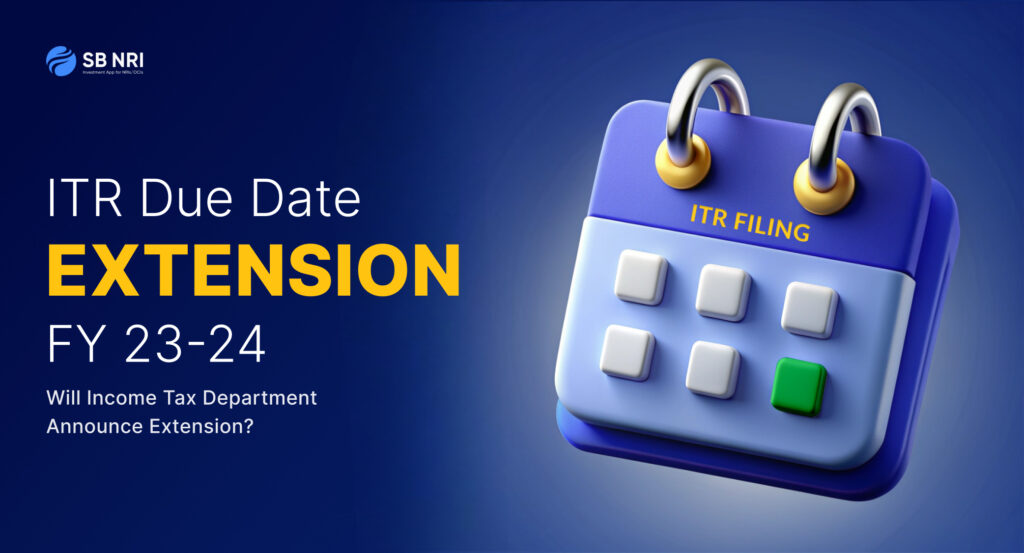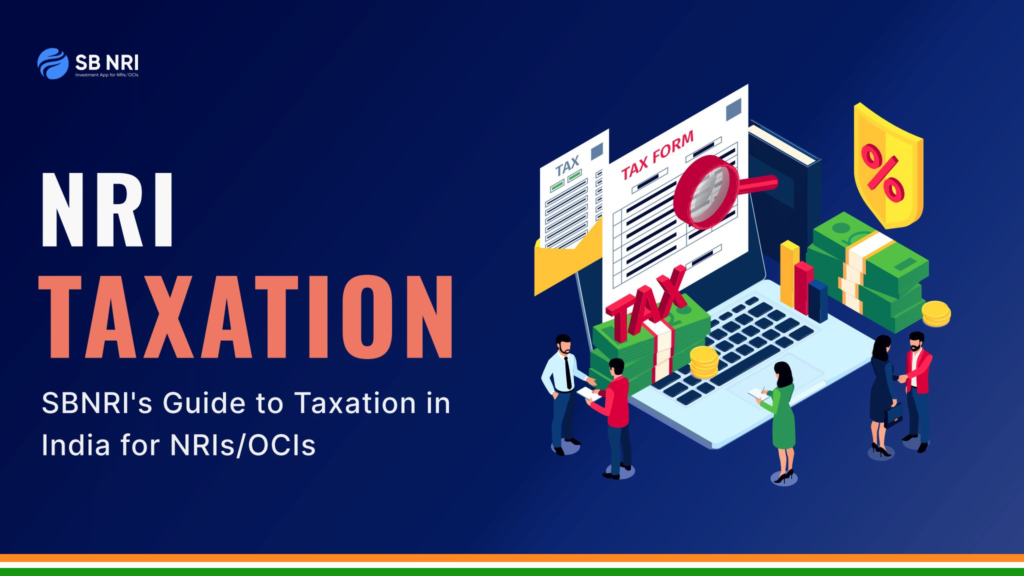
As the deadline for filing Income Tax Returns (ITR) for the financial year 2023-24 approaches, taxpayers across India are anxious about whether the Income Tax Department will announce an extension. Here’s a detailed look at the situation and the potential for ITR Due Date Extension.
Click on the button below to file your ITR in a hassle-free way.
When is the Last Date or Due Date to file ITR?
The last date or due date to fill your Income Tax Return(ITR) in India is July 31st for individuals, Non-Resident Indian(NRI), Overseas Citizen of India(OCI), and HUFs. With the announcement of new tax regimes, there are two tax regimes you can choose from, new tax regime and old tax regime. Any individual, NRI/OCI, or HUF needs to select the right tax regime as per their suitability while filing an ITR.
However, it is also to be noted that from this year onwards, the New Tax regime would be the default tax regime for ITR filing unless the assessee selected another regime. To guarantee your option is recorded and to avoid penalties, don’t forget to file by July 31st. If you do not file ITR by the due date then you will be liable for a penalty for non-filing of ITR.
Also read: ITR Filing for NRIs AY 2024-25: Step-by-Step ITR Filing Process
What is the Penalty for Non-Filing of ITR by the Due Date?
You can still file a belated Income Tax Return (ITR) in India by December 31 of the same fiscal year, even if you miss the July 31 deadline. You will have to pay the penalty under Section 234F for filing beyond the deadline. If you file after the deadline but before December 31st, there is a maximum penalty of Rs 5,000. The maximum fine for small taxpayers is lowered to Rs 1,000 if their total income is less than Rs 5 lakh. There is no penalty for filing after the deadline if your entire income is less than the basic deduction amount.
It’s critical to file your ITR on time to avoid these fines as well as extra costs including losing interest on refunds, having trouble getting a loan or visa, and being investigated by tax officials. The government gives taxpayers a four-month window, from April 1st to July 31st, every year, which is seen as plenty of time to file their taxes. It is therefore advised to file within this window to ensure compliance and avoid costly penalties.
Also read: 5 Tips for NRIs Filing Income Tax Returns in India
Will the Income Tax Department announce the ITR Due Date Extension for FY23-24?
Many taxpayers are having major problems with the e-filing system as the deadline of July 31 for completing income tax returns approaches closer. There have been complaints about errors that make it difficult to access important records including Form 26AS, AIS, and TIS, as well as differences in the numbers in TIS and AIS. Because of these issues, there has been an increase in social media complaints from taxpayers expressing their frustration and concerns.
The primary problem is that they are finding it challenging to file their tax returns on time due to technological issues with the system. Some chartered accountant associations have written to the Income Tax Department in response to these widespread problems. To guarantee that all taxpayers can file their returns without too much stress, they are asking the government to resolve the technical issues and think about extending the deadline of July 31.
In the letter they wrote to the tax department, the Institute of Chartered Accountants of India (ICAI) also draws attention to these challenges. They emphasized upon difficulties affecting both professional and individual taxpayers, and a delay would offer much-needed relief.
Also read: Can NRIs file ITR 1 in India? Types of ITR forms for NRIs
Historical Precedents of ITR Due Date Extension
Historically, the Income Tax Department has extended the ITR filing deadline in response to various challenges. For example, during the COVID-19 pandemic, multiple extensions were provided to ease the burden on taxpayers. However, such extensions are not guaranteed and depend on the prevailing circumstances.
Also read: How long does it take for Income Tax Refund?
NRI Income Tax Slab Rates for AY 2024-25 (FY 2023-24) – New Tax Regime & Old Tax Regime
NRIs can choose between the old tax regime and the new tax regime with a lower rate of taxation (Under Section 115BAC of the Income Tax Act). Given below is the table for the latest Income Tax Slabs rates for the FY 2023-24(AY 2024-25):
| Income Tax Slab | Old Regime Slab Rates for FY 23-24 (AY 24-25) |
|---|---|
| Up to Rs. 2.50 lakh | Nil |
| Rs. 2,50,000 -Rs. 5,00,000 | 5% |
| Above Rs. 5 lakh to Rs. 6 lakh | Rs. 12,500 + 20% |
| Above Rs. 6 lakh to Rs. 7.50 lakh | Rs. 12,500 + 20% |
| Rs. 7.50,000 to Rs. 9,00,000 | Rs. 12,500 + 20% |
| Rs. 9,00,000 to Rs. 10,00,000 | Rs. 12,500 + 20% |
| Rs. 10,00,000-Rs. 12,00,000 | Rs. 1,12,500 + 30% |
| Rs. 12,00,000-Rs. 12,50,000 | Rs. 1,12,500 + 30% |
| Rs. 12,50,000-Rs. 15,00,000 | Rs. 1,12,500 + 30% |
| Above Rs. 15,00,000 | Rs. 1,12,500 + 30% |
| Income Tax Slab | New Regime Slab Rates for FY 23-24 (AY 24-25) |
|---|---|
| Up to Rs. 3 lakh | Nil |
| Rs. 3,00,000 -Rs. 6,00,000 | 5% (Rebate u/s 87A available) |
| Rs. 6,00,001 lakh to Rs. 9,00,000 | 10% (Rebate u/s 87A available for taxable income up to 7 lacs) |
| Rs. 9,00,001 to Rs. 12,00,000 | 15% |
| Rs. 12,00,001 to Rs. 15,00,000 | 20% |
| Above Rs 15,00,000 | 30% |
Note:
- Income tax exemption limit for NRI taxpayers is up to Rs. 2,50,000.
- NRIs opting for the new tax regime with lower rates will not be eligible for certain exemptions and deductions (like 80C, 80D, 80TTB, HRA).
- If they continue to pay taxes under the existing tax regime, NRIs can avail rebate and exemptions.
- NRIs can avail the new tax regime in India but they can’t claim the rebate on full tax for income up to Rs. 7 lakh. Only residents can claim the rebate on it.
Also read: What is Sec 87A of the Income Tax Act? Can NRIs avail it?
Wrapping up
While the possibility of an ITR due date extension for the financial year 2023-24 remains uncertain, taxpayers should not rely on it. Proactively preparing and filing returns ahead of the current deadline is the best approach to avoid last-minute stress and potential penalties. Stay informed by regularly checking updates from the Income Tax Department to ensure compliance and peace of mind.
Also read: New Rules for NRI Taxation in India FY-2023-24
Calculate your TDS Refund with SBNRI’s TDS Refund Calculator
A TDS refund is the process of reclaiming the excess tax deducted at source by the payer if the actual tax liability of the taxpayer is lower than the TDS deducted. This situation typically arises when the income tax calculated on the total income is less than the TDS already deducted. To claim a TDS refund, taxpayers need to file an income tax return (ITR). The Income Tax Department processes the ITR and verifies the details. If the tax department finds that the TDS paid is more than the actual tax liability, the excess amount is refunded to the taxpayer.
You can easily find out how much tax refund you can get by calculating your TDS Refund from this TDS Refund Calculator.
Access SBNRI’s Exclusive NRI Taxation Guide

NRIs and OCIs can now access SBNRI’s exclusive NRI Taxation Guide covering in-depth information about DTAA, Gift Tax, Rental Income Tax, ITR Filing, Types of ITR Forms for NRIs, Capital Gain Tax, Income Tax, and more. The report will help you understand India taxation on mutual funds, other asset classes and how to comply with the regulations.
Access NRI Taxation Guide here
Looking for NRI ITR Filing? Connect with SBNRI NRI Tax Expert CA Today!

At SBNRI, we have simplified ITR filing for NRIs/OCIs through a smooth digital journey. Be it Basic Filing, Advanced Filing (includes Capital Gain, etc.), or Premium Filing (Foreign Income), we can help you assess the right computation and lower your tax liability.
“We’ve helped over 500+ NRIs/OCIs file ITR returns and more than 25,000+ across other taxation services last financial year and we’d love to help you out too”
You can download SBNRI App or connect with NRI Tax Expert team directly via the button below.
FAQs
Will the ITR Deadline Be Extended?
Due to many technical and procedural issues, there is increasing demand from taxpayers and tax professionals to extend the ITR filing deadline. However, the tax department has not yet indicated that the deadline will be extended beyond July 31.
What happens if I fill ITR 1 instead of ITR 2?
If you choose the wrong ITR form, the filed return will be treated as defective and you will need to file a revised ITR using the correct form.
What is the penalty for not filing an ITR within the due date?
If you file your Income Tax Return (ITR) late, you will have to pay a penalty. The maximum penalty is Rs 5,000. This penalty applies if you file your ITR after the due date of 31st July 2024 but before 31st December 2024.
What is the Due Date for Filing a Tax Audit Report?
The last date for filing a tax audit report is:
- October 31 of the following year for taxpayers involved in international transactions.
- September 30 of the following year for all other taxpayers.



